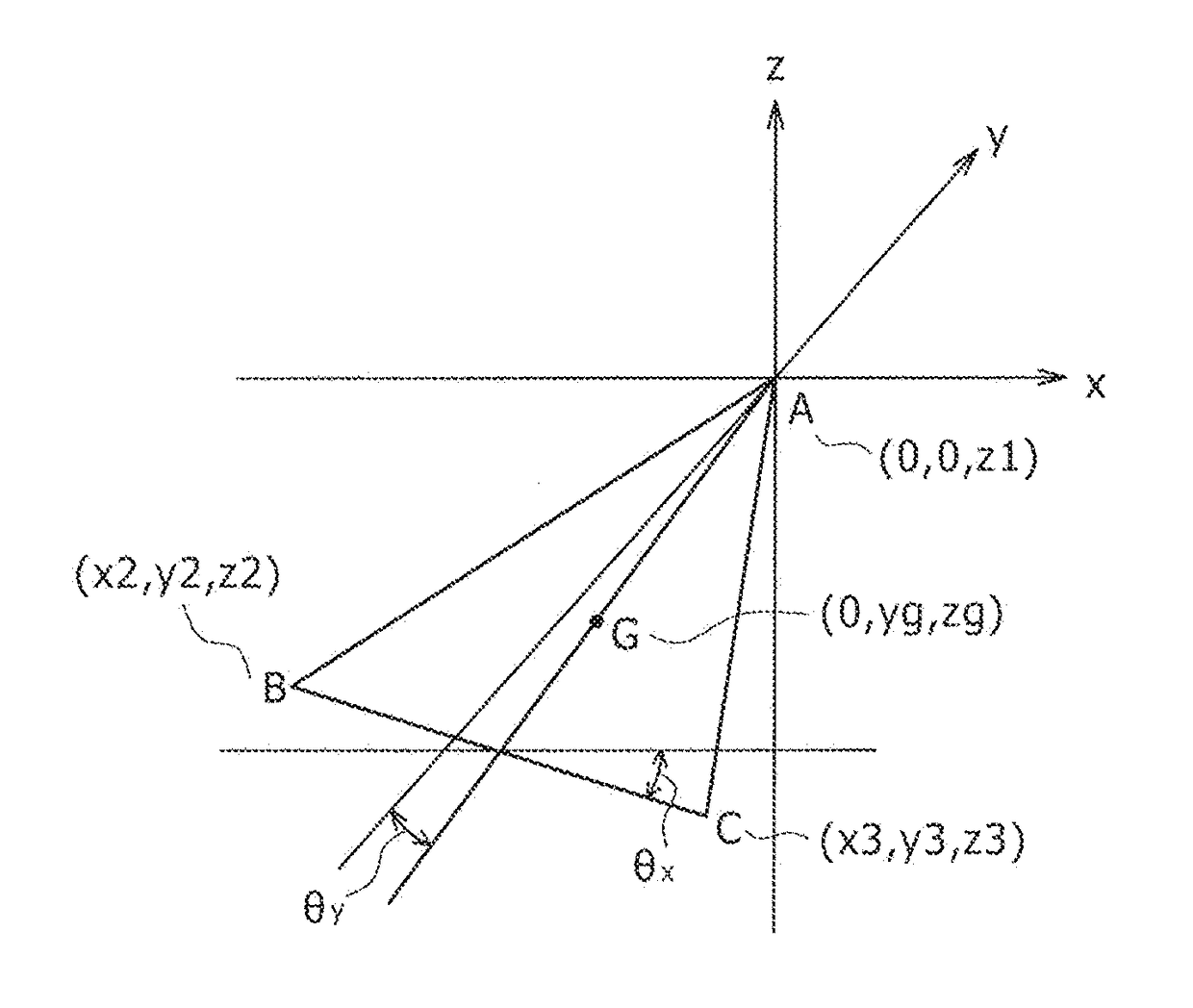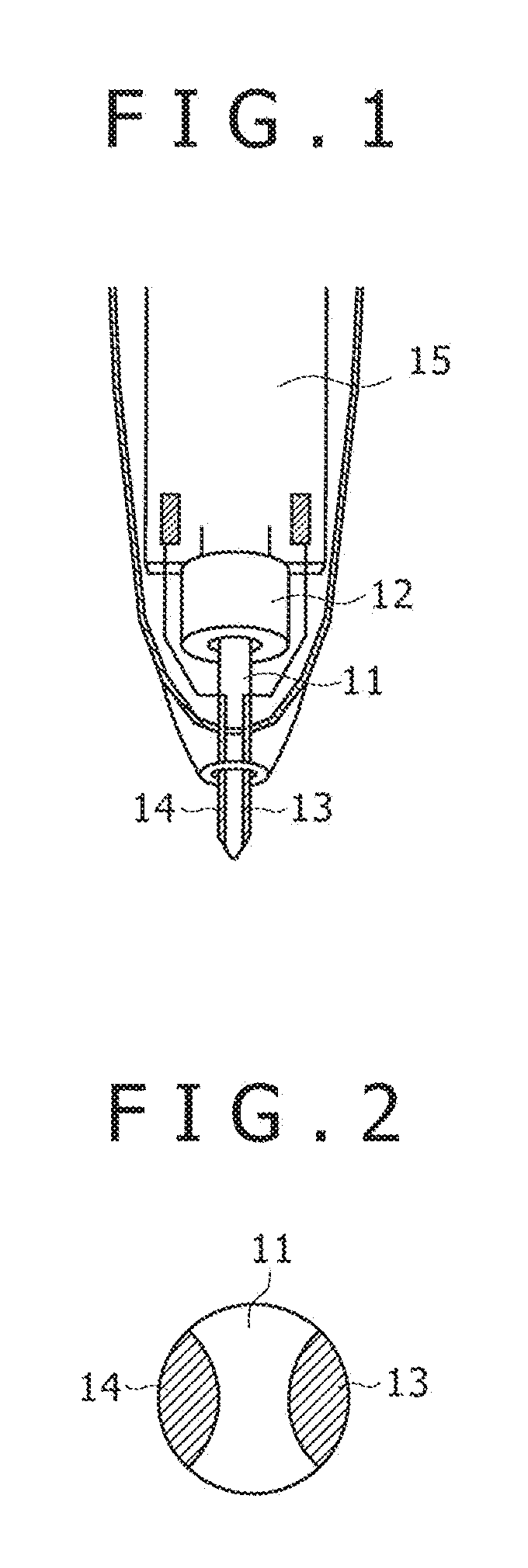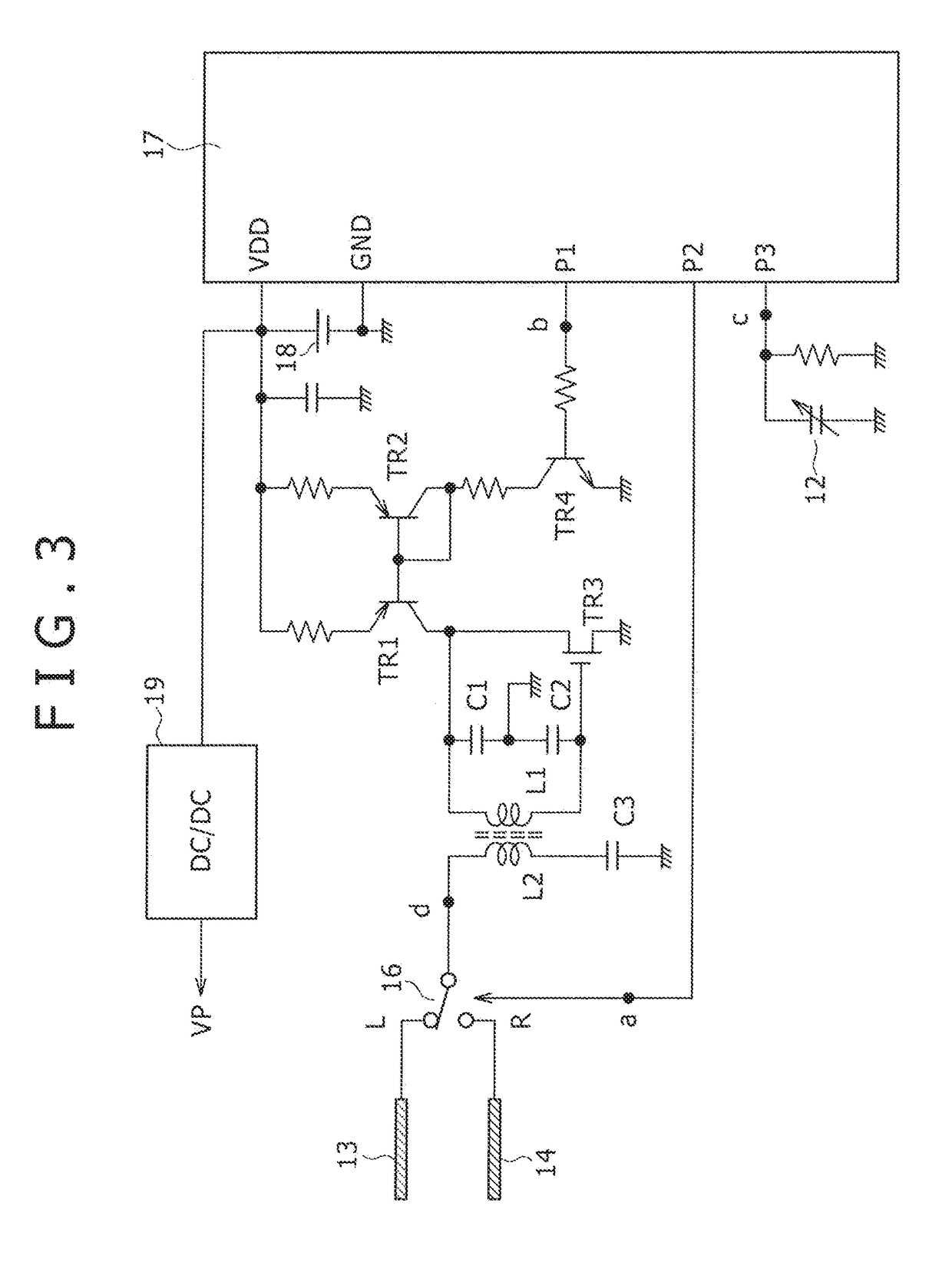Position detecting device and position indicator thereof
a technology of position indicators and detecting devices, which is applied in the direction of instruments, computing, electric digital data processing, etc., can solve the problems of difficult to sufficiently lower the resistance value when it is turned, thick pen, and difficulty in reducing so as to reduce the resolution and accuracy of the calculation of the rotation angle. , the distance between the center of two magnetic cores is also shortened, and the distance between two coordinates detected by the tablet is also
- Summary
- Abstract
- Description
- Claims
- Application Information
AI Technical Summary
Benefits of technology
Problems solved by technology
Method used
Image
Examples
first embodiment example
[0044]FIG. 1 is a diagram showing the structure of a position indicating part in a position indicator of a first embodiment example according to the present invention. In FIG. 1, numeral 11 denotes a core that transmits pressure applied to the pen tip and it is molded by an insulating material such as plastic. Numeral 12 denotes a variable-capacitance capacitor whose capacitance changes depending on the writing pressure applied via the core 11 and, e.g., such as the one disclosed in Japanese Patent Laid-open No. Hei 4-96212 (Patent Document 2). The variable-capacitance capacitor 12 has a coupling part to the core 11 as disclosed in the above-described Patent Document 2 and this coupling part is so configured as to slightly move together with the core 11 depending on the writing pressure applied to the core 11.
[0045]Numerals 13 and 14 denote electrodes and they are buried in the core 11. FIG. 2 is a sectional view when the core 11, in which the electrodes 13 and 14 are buried, is cut...
second embodiment example
[0109]FIG. 10 is a diagram showing the structure of a position indicating part in a position indicator of a second embodiment example according to the present invention. In FIG. 10, the same part as that in FIG. 1 is given the same reference numeral. That is, numeral 12 denotes a variable-capacitance capacitor whose capacitance changes depending on the writing pressure and numeral 15 denotes a printed board. A core 35 is coupled to the variable-capacitance capacitor 12 and the writing pressure applied to the tip of the core 35 is detected. Numeral 36 denotes a chassis and a hole through which the core 35 passes is made at its tip part.
[0110]Two electrodes 37 and 38 are provided at the tip part of the chassis 36 and FIG. 11 is a diagram showing the arrangement thereof. The following description will be so made that the electrodes 37 and 38 are called the L electrode and the R electrode, respectively.
[0111]FIG. 12 is a circuit configuration diagram of the position indicator of the sec...
third embodiment example
[0128]FIG. 15 is a diagram showing the structure of a position indicating part in a position indicator of a third embodiment example according to the present invention. In the present embodiment example, an example is shown in which three electrodes are disposed in the position indicator and a tilt of the position indicator relative to the tablet is obtained in addition to a rotation angle thereof.
[0129]In FIG. 15, the same part as that in FIG. 10 is given the same reference numeral. That is, numeral 12 denotes a variable-capacitance capacitor whose capacitance changes depending on the writing pressure. Numerals 15, 35, and 36 denote a printed board, a core, and a chassis, respectively.
[0130]Three electrodes 40, 41, and 42 are provided at the tip part of the chassis 36 and FIG. 16 is a diagram showing the arrangement thereof. These three electrodes are connected to the printed board 15 by a connection line (not shown).
[0131]FIG. 17 is a circuit configuration diagram of the position ...
PUM
 Login to View More
Login to View More Abstract
Description
Claims
Application Information
 Login to View More
Login to View More - R&D
- Intellectual Property
- Life Sciences
- Materials
- Tech Scout
- Unparalleled Data Quality
- Higher Quality Content
- 60% Fewer Hallucinations
Browse by: Latest US Patents, China's latest patents, Technical Efficacy Thesaurus, Application Domain, Technology Topic, Popular Technical Reports.
© 2025 PatSnap. All rights reserved.Legal|Privacy policy|Modern Slavery Act Transparency Statement|Sitemap|About US| Contact US: help@patsnap.com



